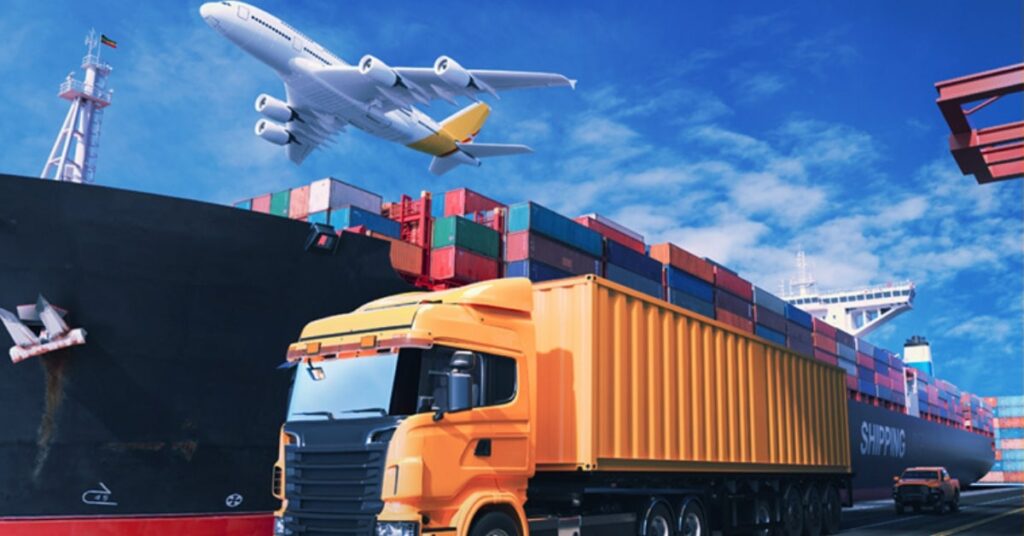
Understanding Freight Forwarding
In today’s interconnected world, global trade is a vital component of the economy. Goods and products are constantly being transported across borders, making efficient logistics and supply chain management essential. This is where freight forwarding comes into play. In this blog post, we will explore the ins and outs of freight forwarding, how it works, its benefits, key considerations in choosing a freight forwarder, potential challenges, real-life examples, industry trends, and more.
How Freight Forwarding Works
Freight forwarding can be defined as the coordination and management of the transportation of goods from one location to another, typically across different countries or continents. It acts as an intermediary between businesses and carriers, ensuring the smooth movement of goods by land, sea, or air. Freight forwarders play a crucial role in simplifying the complexities of international trade and providing end-to-end solutions to businesses. Many freight forwarders, such as Dedola, can also handle customs clearance, documentation, cargo insurance, and provide real-time shipment tracking, ensuring businesses can have a seamless international shipping experience.
Benefits of Using a Freight Forwarder
One of the major benefits of using a freight forwarder is their expertise and knowledge of international shipping regulations. Navigating the complexities of customs compliance, import/export laws, and documentation requirements can be daunting for businesses. Freight forwarders have extensive experience in these areas and ensure that shipments are in full compliance with legal requirements.
Additionally, freight forwarders streamline logistics and supply chain processes, saving time and improving efficiency. Freight forwarding and logistics professionals at GAVA International emphasize working with freight worders when moving items from point A to point B. They have established networks and partnerships with reliable carriers and agents worldwide, allowing them to negotiate competitive rates and secure timely transportation for goods. This ensures that businesses can focus on their core operations while leaving the intricacies of transportation to the experts.
Cost-effectiveness is another advantage of using freight forwarders. Consolidating shipments, optimizing routes, and leveraging economies of scale enable freight forwarders to offer cost-effective transportation solutions. They can provide businesses with competitive pricing options and help minimize transportation expenses, contributing to overall cost savings.
Risk mitigation is a crucial aspect of freight forwarding. Freight forwarders offer cargo insurance options to protect shipments against loss or damage during transit. This ensures that businesses have peace of mind knowing that their goods are covered in case of any unforeseen events or accidents.
Key Considerations in Choosing a Freight Forwarder
When choosing a freight forwarder, there are several key considerations to keep in mind. Reputation and experience in the industry are paramount. Look for established freight forwarders with a proven track record of successful operations and satisfied customers. Their network and partnerships with reliable carriers and agents will also play a significant role in ensuring smooth transportation.
Technology and tracking capabilities are essential in today’s digital age. Freight forwarders with advanced systems and platforms can provide real-time visibility of shipments, allowing businesses to track and monitor their goods throughout the transportation process. This level of transparency enhances control and minimizes the risk of delays or disruptions.
Challenges and Potential Pitfalls
While freight forwarding offers numerous benefits, it is not without its challenges and potential pitfalls. Complex international trade regulations, transportation delays, documentation errors, and hidden costs are some of the hurdles that businesses may face. However, by partnering with experienced freight forwarders and staying informed about industry trends, these challenges can be mitigated effectively.
Industry Trends and Innovations in Freight Forwarding
Innovation and technology are driving significant changes in the freight forwarding industry. Digitalization has revolutionized the way shipments are managed, offering enhanced supply chain visibility, automated processes, and efficient communication channels. Sustainable practices, such as using eco-friendly transportation options and optimizing routes to reduce carbon emissions, are also gaining momentum.
In conclusion, understanding freight forwarding is crucial for businesses engaged in global trade. By partnering with reputable freight forwarders, companies can streamline their logistics processes, benefit from cost-effective solutions, mitigate risks, and ensure timely delivery of goods. As the world becomes increasingly connected, the role of freight forwarding in facilitating international trade will continue to grow. Embracing the services of freight forwarders is a strategic move for businesses looking to thrive in the global marketplace.
With a solid foundation in technology, backed by a BIT degree, Lucas Noah has carved a niche for himself in the world of content creation and digital storytelling. Currently lending his expertise to Creative Outrank LLC and Oceana Express LLC, Lucas has become a... Read more